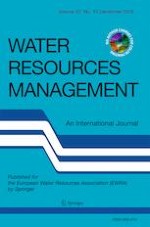02-12-2019
Application of a Coordination Model for a Large Number of Stakeholders with a New Game Theory Model
Published in: Water Resources Management | Issue 15/2019
Log inActivate our intelligent search to find suitable subject content or patents.
Select sections of text to find matching patents with Artificial Intelligence. powered by
Select sections of text to find additional relevant content using AI-assisted search. powered by
